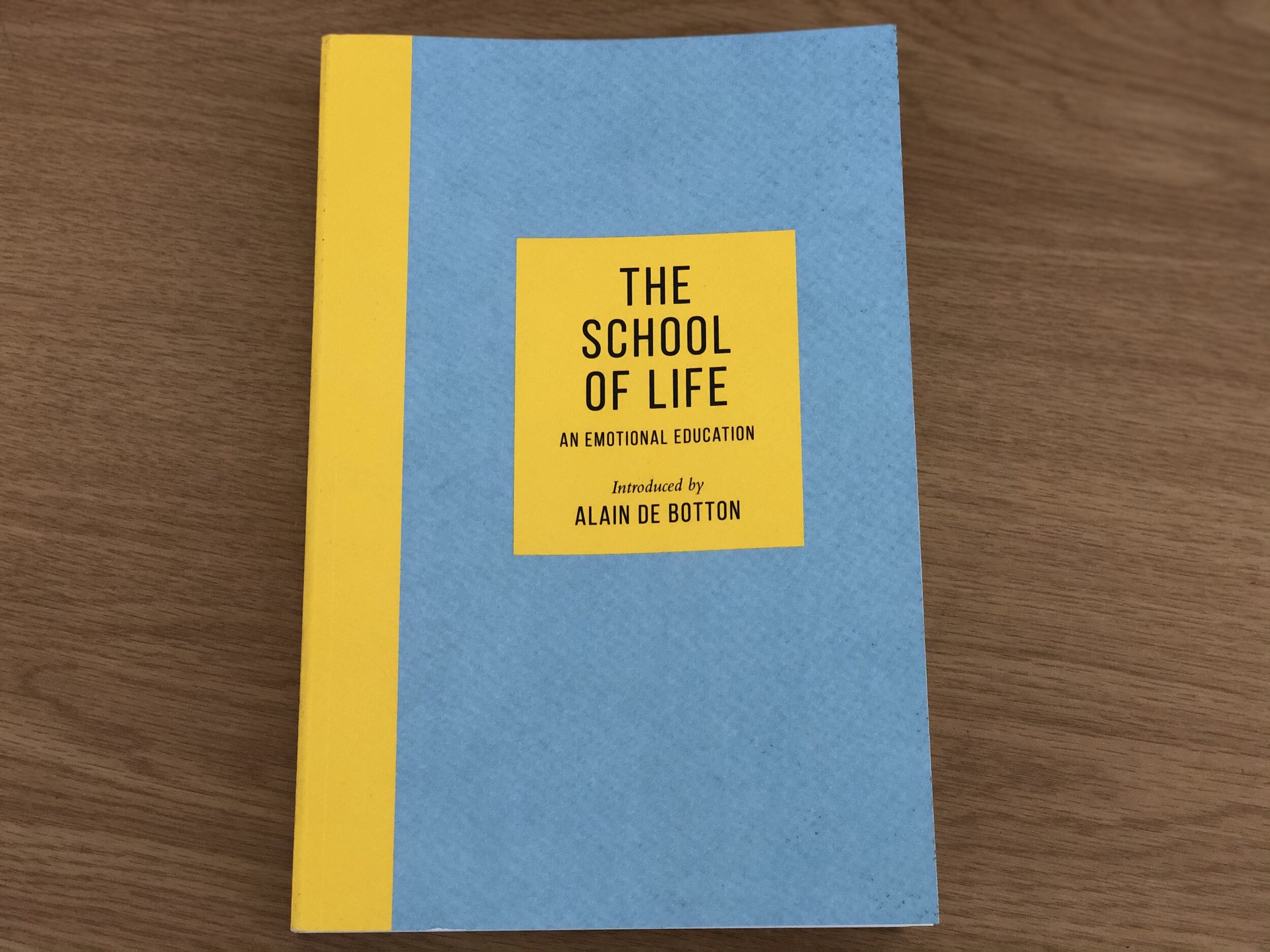'The School of Life: An Emotional Education' (Book Review)
As a proper book nerd, there is immense joy in discovering an author who grabs your attention and won’t let it go. In the past 3 years, I’ve experienced this with Alain de Botton. He is a British-Swiss philosopher whose books have been remarkably influential on the way that I think about mental health and personal development. He has a way of articulating timeless wisdom and truth in a format that speaks to the raging debates going on in my head.
Most of his work has been in service of an organisation that he founded called ’The School of Life’ based in London, but with its tentacles all around the world. The organisation is committed to emotional education and well-being. It focuses on delivering psychotherapy, as well as drawing upon culture more generally, to illuminate topics of emotional concern.
Their latest project has been a book entitled ‘The School of Life: An Emotional Education’ which aims to summarise much of their advice and consolation into one place. Once again, I found it enlightening.
The main thrust of the book is to bust the myth that matters of emotion are innate and allergic to rational thinking. The key claim is that the notion of Romanticism brought to us by popular storytelling has harmed our ability to reach sustainable emotional insight. We don’t think that it’s something we can work on and get better at.
Even in the midst of the global mental health campaign that is in the zeitgeist at the moment, I think this notion holds true for much of our society. And it’s something we need to change. We can evolve our thinking on emotion, and we should. We can use reason when considering the big questions of life, and we should. We can learn to manage our emotions, and we should.
Key to note here is that the goal is not to achieve some state of constant happiness and contentment. It’s exactly the opposite. The goal is to stop looking for cures and to settle for consolations about the human condition.
When searching for those consolations, the book provides four markers of emotional health that I think are quite valuable in assessing where you’re at and if you’re making progress on this journey:
Self Love: How much can we be friends with ourselves and remain on our own side?
Candour: The extent to which difficult ideas and troubling facts can be admitted into the mind, soberly explored and accepted without denial.
Communication: Can we patiently and reasonably put our disappointment into words that, more or less, enable others to see our point?
Trust: How readily might we survive a challenge in the form of a speech we must give, a romantic rejection, a bout of financial trouble, a journey to another country or a common cold? How resilient are we?
The other key theme that I think this book tackles very successfully is that of anxiety - a rampant attacker in the 21st century. I love this quote:
“Anxiety is not a sign of sickness, a weakness of the mind or an error for which we should always seek a medical solution. It is mostly a hugely reasonable and sensitive response to the genuine strangeness, terror, uncertainty and riskiness of existence. The single most important move is acceptance. There is no need - on top of everything else - to be anxious that we are anxious. The mood is no sign that our lives have gone wrong, merely that we are alive.”
I’ll leave you with those two takeaways, but there is so much more in this book. It’s a wonderful collection of wisdom delivered without a religious, commercial or hidden agenda. It’s realistic about human suffering, optimistic about human potential and comforting for a world that so desperately needs consolation.
